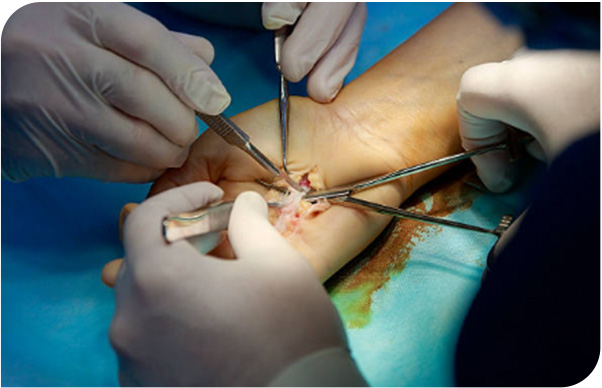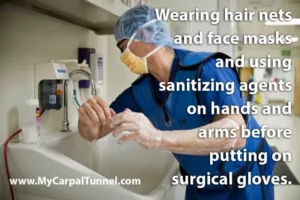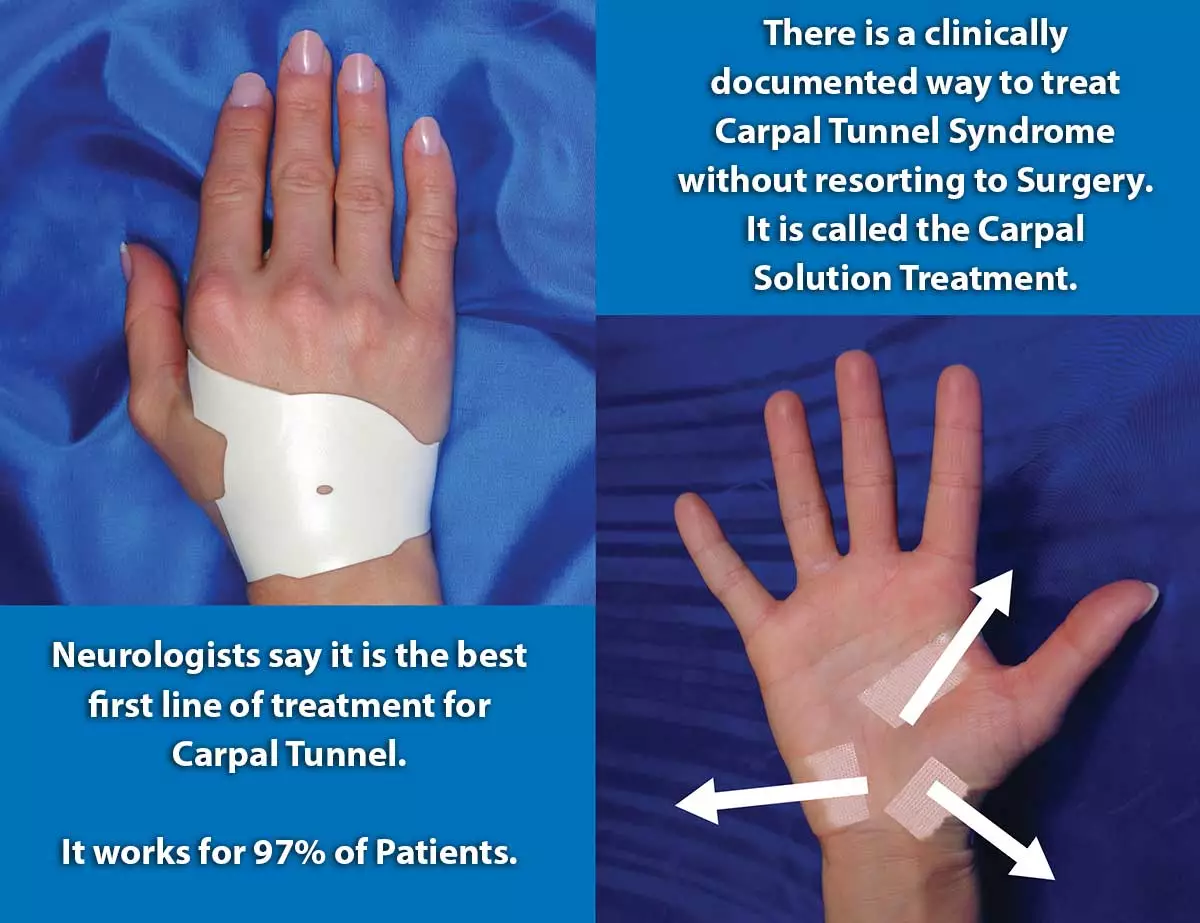What is the Risk of Infection with Carpal Tunnel Surgery?
Any time you submit to a surgical procedure there is a risk of infection. It is considered as one of the major risks associated with any surgery.


By The Carpal Solution Medical Team Over 300 years combined medical experience

Infection with any Surgery is Risky
 Question by Patient:
Question by Patient:
I had a friend who got a serious infection after Carpal Tunnel Surgery. Now I have Carpal Tunnel and the Surgeon wants to do surgery on me. What is the risk of infection with Carpal Tunnel Surgery?
Andrea
Director Social Media Marketing
San Jose, California
Answers by Doctors at First Hand Medical
Any time you submit to a surgical procedure there is a risk of infection. It is considered as one of the major risks associated with any surgery.
Hospitals and clinics create a perfect storm for the spread of infections.
Because there are so many infectious diseases being treated in hospitals and clinics and because bacteria cannot be seen with the naked eye, it is a challenge to keep bacterial infections under control.
Bacteria need water, food and warmth to multiply and spread. In hospitals all of these are available in abundance.
Surgery personnel and hospitals go to great lengths to prevent the spread of bacterial infections.


Clinics and Surgery Personnel go beyond what you probably imagined to prevent the spread of infection.

 However, a fundamental truth learned from Jurassic Park
However, a fundamental truth learned from Jurassic Park
Infections occur in less than 1% of Carpal Tunnel Surgical Procedures. However, many would ask “Why take any risk if you don’t have to?”
“Life finds a way” applies to bacteria too.
When infection does happen post-surgery, the consequences can be devastating. Infections can be life threatening or result in the loss of limbs. At a minimum, infections usually result in long hospital stays and long recovery periods. Powerful antibiotics are administered that can only be apply with an IV tube. Patients typically experience extended weakness and dampened immune systems. These incidents are not to be trifled with.
 Antibiotics are generally prescribed by a Surgeon after any surgical procedure to help avoid infections and minimize the effects if they do occur.
Antibiotics are generally prescribed by a Surgeon after any surgical procedure to help avoid infections and minimize the effects if they do occur.
Surgeons typically advise their family and friends to find any clinically documented non-invasive treatment available to avoid Surgery for any ailment to avoid these types of potential complications.
This is especially true for Carpal Tunnel Surgery, since CTS comes back even after a “successful surgical procedure” for over 85% of patients.
Dr. Jerome Grossman, Director of Healthcare Delivery at Harvard’s Kennedy School, said:
 “Going to a Hospital for surgery is like going to a war zone. You should have a friend or family member by your side, who is smart, assertive and loves you intensely; this person can look after your interest while you are vulnerable in a dangerous place.”
“Going to a Hospital for surgery is like going to a war zone. You should have a friend or family member by your side, who is smart, assertive and loves you intensely; this person can look after your interest while you are vulnerable in a dangerous place.”

Watch Patients tell how symptoms got worse after Carpal Tunnel Surgery until they found a natural cure.
There is no need to risk infection, incur the downtime or expose yourself to the risk of other complications associated with surgery or risk the formation of scar tissue with Carpal Tunnel Surgery.
Learn More about the other Risks of Carpal Tunnel Surgery
There is a much better way to start treating your wrist condition. Neurologists, the nerve experts in medicine suggest that the best first line treatment is:
The Carpal Solution Treatment
It is a non-invasive, clinically documented treatment that was developed by Doctors.
It works for 97% of people and should be tried first before resorting to a Surgical Procedure that carries a lot of risk.
Another thing to keep in mind is there is no permanent fix for this hand condition. Most people, once they realize this, do not take the risk of surgery for a syndrome that comes back for over 85% of patients after surgery. Repeat surgeries are not a good idea due to scar tissue formation and significantly lower patient success rates.
Most people get rid of their worst symptoms of Carpal Tunnel within 2 to 4 weeks and then achieve complete remission within 6 weeks when using the Carpal Solution Treatment.
This is why Neurologists say it is the best first line treatment for CTS. Patients simply call it their: “Carpal Tunnel Cure”.
 Created by renowned Harvard health care professionals.
Created by renowned Harvard health care professionals. 



